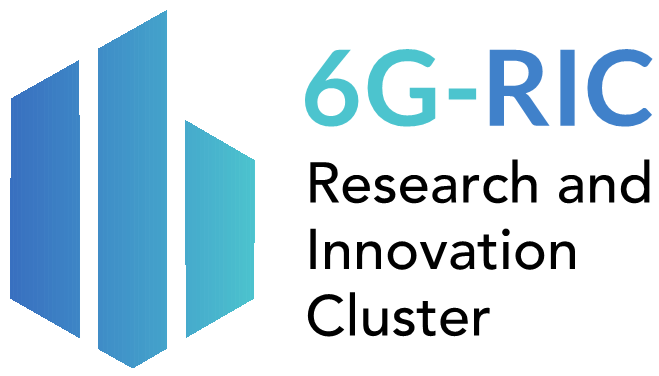IEEE WCNC 2024 Workshop on Modern Random Access
for Massive Connectivity in 6G
Dubai, United Arab Emirates, 21 April 2024
|
Technical Program
Slot 1: 09:00-10:30 09:00-10:00 Keynote Speaker: Prof. Krishna Narayanan, Texas A&M University 
Title: Re-engineering the Uplink for Next Generation Massive Multiple Access Abstract: Current wireless infrastructures have been designed to serve human-operated devices, with popular applications such as voice telephony, Internet browsing, navigation, and music/video streaming. Much of the engineering behind existing systems has focused on developing an efficient and high-throughput downlink. Yet, the emergence of machine-type communication (MTC) is forcing a paradigm shift because unattended devices interact with their environments in fundamentally different ways compared to humans. Machine-type communication is characterized by the sporadic and fleeting nature of traffic, short payloads, and large number of transmitting users. Supporting machine-type traffic requires a re-engineering of the physical and medium access control layers in the uplink. I will provide an overview of our recent results on how we can use the 2-step random access channel (RACH) procedure as a blueprint and enhance it to design massive multiple access schemes for the next generation. We will present an overview of how recent research (from many research groups) has revitalized classical approaches such as slotted ALOHA, interference cancellation, compressed sensing, interleave-division multiple access, and code division multiple access to support machine type communication. 10:00-10:15 An SCMA-Based Grant-Free Access Scheme
BREAK Slot 2: 11:00-12:30 11:00-11:15 Age-optimal Joint Sampling and Transmitting
Scheduling for Wireless Sensor Networks with Energy Harvesting
11:15-11:30 Massive Opportunistic Sensing with Limited
Collaboration for Age of Information
11:30-11:45 Timeliness Analysis of CSMA/CA with Truncated
HARQ in the Finite Blocklength Regime
11:45-12:00 Towards 6G Data-Oriented Uplink RSMA Systems:
Delay-Outage Ratio Analysis
12:00-12:15 Secrecy Communications for Wireless-Powered
Cooperative NOMA Systems: A Power Allocation and Friendly Jamming Approach
12:15-12:30 Decentralized Massive Access Random Scheme in
User-Centric Cell-free Massive MIMO System Call for Papers The ability to provide connectivity to a massive number of low-power, low-complexity devices will play a pivotal role in the definition of next generation 6G systems, targeting a variety of diverse internet-of-things verticals enriched by the non-terrestrial segment. In this context, grant-free multiple-access protocols are a fundamental enabler in serving a dynamic population of devices that share the same communication medium to transmit in sporadic and unpredictable patterns. While traditional random-access protocols often treat collisions as wasteful, recent years have seen ground-breaking developments in the vision of beyond-5G and 6G communications. These new approaches, often categorized under the broad name of unsourced massive access, offer an entirely different perspective on grant-free protocols by constructively embracing interference, and have triggered a large amount of research in the past few years. Research in the field is further buttressed by clearly defined market-driven goals from the industry, in the quest for highly reliable, highly efficient, low-complexity access solutions for a massive number of devices. The road towards 6G and more generally IoT communications represent only some relevant application examples where upcoming research has the potential to leave a fundamental mark. The goal of this workshop is to stimulate new contributions to the topic, with an emphasis on cross-layer interactions between the MAC and PHY layers of the protocol stack, as well as on the connections to coding theory. Additionally, we seek to explore the integration of machine learning techniques in the design and optimization of these protocols, unlocking innovative approaches to further enhance network efficiency and adaptability in the rapidly evolving landscape of 6G and IoT communications. The workshop is supported by the 6G Research and Innovation Cluster (6G-RIC), an interdisciplinary collaboration linking a total of 32 research groups from 20 universities and research institutions supported by over 60 associate partners from science, industry and the public sector in Germany, designed to lay the scientific and technical foundations for the next generation of mobile communications.
Topics of interest include, but are not limited to:
The workshop accepts only novel, previously unpublished papers. All submitted papers should be written in English with a maximum paper length of six (6) printed pages (10-point font) including figures. Accepted papers will be submitted for inclusion in IEEE Xplore/IEEE Digital Library, provided they are covered by one registration and they are presented at the workshop. Important dates:Full paper submissions: 22 Dic. 2023. Notification of acceptance: 15 Jan. 2024. Final manuscript: 25 Jan. 2024 |
6G-RIC webpage IEEE WCNC 2024 webpage Workshop Chairs Andrea Munari, German Aerospace Center Technical Program Committee
Giuseppe Cocco, University of Catalunya Associated Events DLR-MIT-TUM Workshop on Coding and Random Access 2020 IEEE SmallDataNets 2019 IEEE PIMRC SmallDataNets 2018 IEEE SPAWC SmallDataNets 2017 IEEE ICC MASSAP 2016 IEEE ICC MASSAP 2015 IEEE ICC MASSAP 2014 2013 First DLR Workshop on Coding and Random Access |
